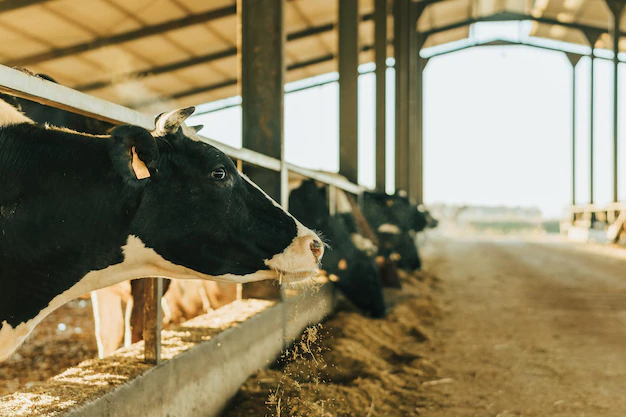Artificial insemination (AI) is a technique that has been widely used in the livestock industry to improve reproductive efficiency. By artificially introducing semen from selected males into females, AI offers several advantages over natural mating. Here are some ways in which AI can enhance livestock reproduction efficiency:
- Genetic Improvement: AI allows breeders to use semen from superior males, which can significantly accelerate genetic progress within a population. By selecting the best sires for desired traits such as growth rate, milk production, disease resistance, or meat quality, breeders can propagate these traits more rapidly across the herd.
- Increased Reproductive Efficiency: AI enables breeders to overcome reproductive challenges such as subfertility or behavioral issues in males or females. It ensures that a greater number of females can be inseminated with high-quality semen, maximizing the chances of pregnancy.
- Disease Control: AI reduces the risk of transmitting sexually transmitted diseases or infections between animals during mating. By utilizing AI, breeders can maintain strict control over the health status of their herd, reducing the potential spread of diseases.
- Cost and Labor Savings: AI eliminates the need for maintaining a large number of breeding males on the farm, reducing feeding and maintenance costs. Moreover, it simplifies the breeding process by eliminating the need for managing mating pairs and reduces labor requirements associated with natural mating.
- Record Keeping and Data Analysis: AI allows for accurate and consistent record-keeping of breeding events, making it easier to track and analyze reproductive performance. This data can provide valuable insights into individual animal fertility, timing of insemination, and overall herd reproductive trends.
- Efficient Use of Genetic Material: AI enables the preservation and efficient use of valuable genetic material. Semen from highly productive or rare males can be collected, stored, and used in multiple females, thus maximizing the impact of their genetic potential.
- Reduced Risk of Injury: AI eliminates the risk of injuries that can occur during natural mating, which can sometimes lead to significant losses due to animal injuries or deaths. It provides a safer alternative for both animals and handlers involved in the breeding process.
Overall, by utilizing artificial insemination, livestock producers can improve reproductive efficiency, accelerate genetic progress, and optimize resource utilization, leading to enhanced productivity and profitability in the livestock industry.
Join 'Farmers Mag' WhatsApp Channel
Get the latest Farming news and tips delivered straight to your WhatsApp
CLICK HERE TO JOIN






